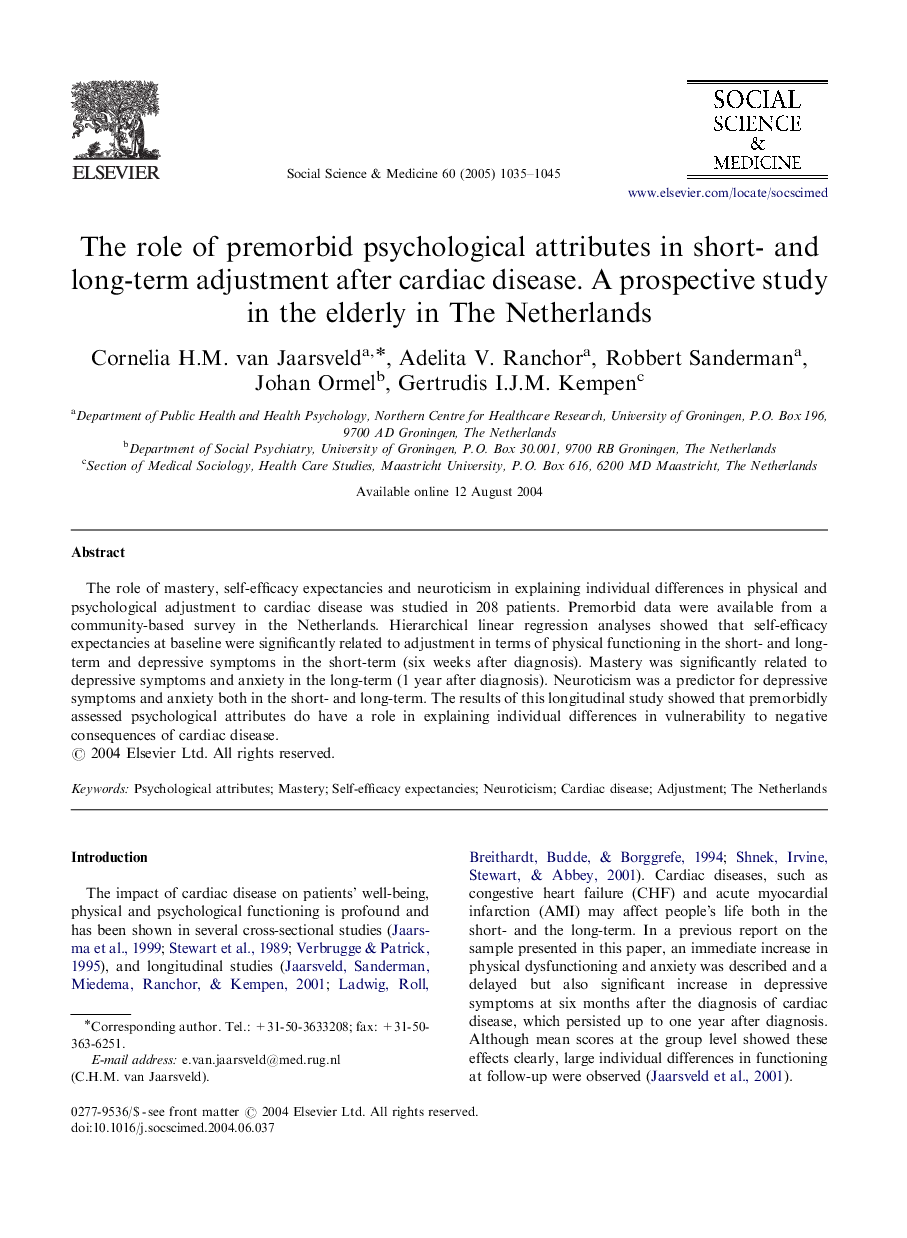| Article ID | Journal | Published Year | Pages | File Type |
|---|---|---|---|---|
| 10473240 | Social Science & Medicine | 2005 | 11 Pages |
Abstract
The role of mastery, self-efficacy expectancies and neuroticism in explaining individual differences in physical and psychological adjustment to cardiac disease was studied in 208 patients. Premorbid data were available from a community-based survey in the Netherlands. Hierarchical linear regression analyses showed that self-efficacy expectancies at baseline were significantly related to adjustment in terms of physical functioning in the short- and long-term and depressive symptoms in the short-term (six weeks after diagnosis). Mastery was significantly related to depressive symptoms and anxiety in the long-term (1 year after diagnosis). Neuroticism was a predictor for depressive symptoms and anxiety both in the short- and long-term. The results of this longitudinal study showed that premorbidly assessed psychological attributes do have a role in explaining individual differences in vulnerability to negative consequences of cardiac disease.
Related Topics
Health Sciences
Medicine and Dentistry
Public Health and Health Policy
Authors
Cornelia H.M. van Jaarsveld, Adelita V. Ranchor, Robbert Sanderman, Johan Ormel, Gertrudis I.J.M. Kempen,
